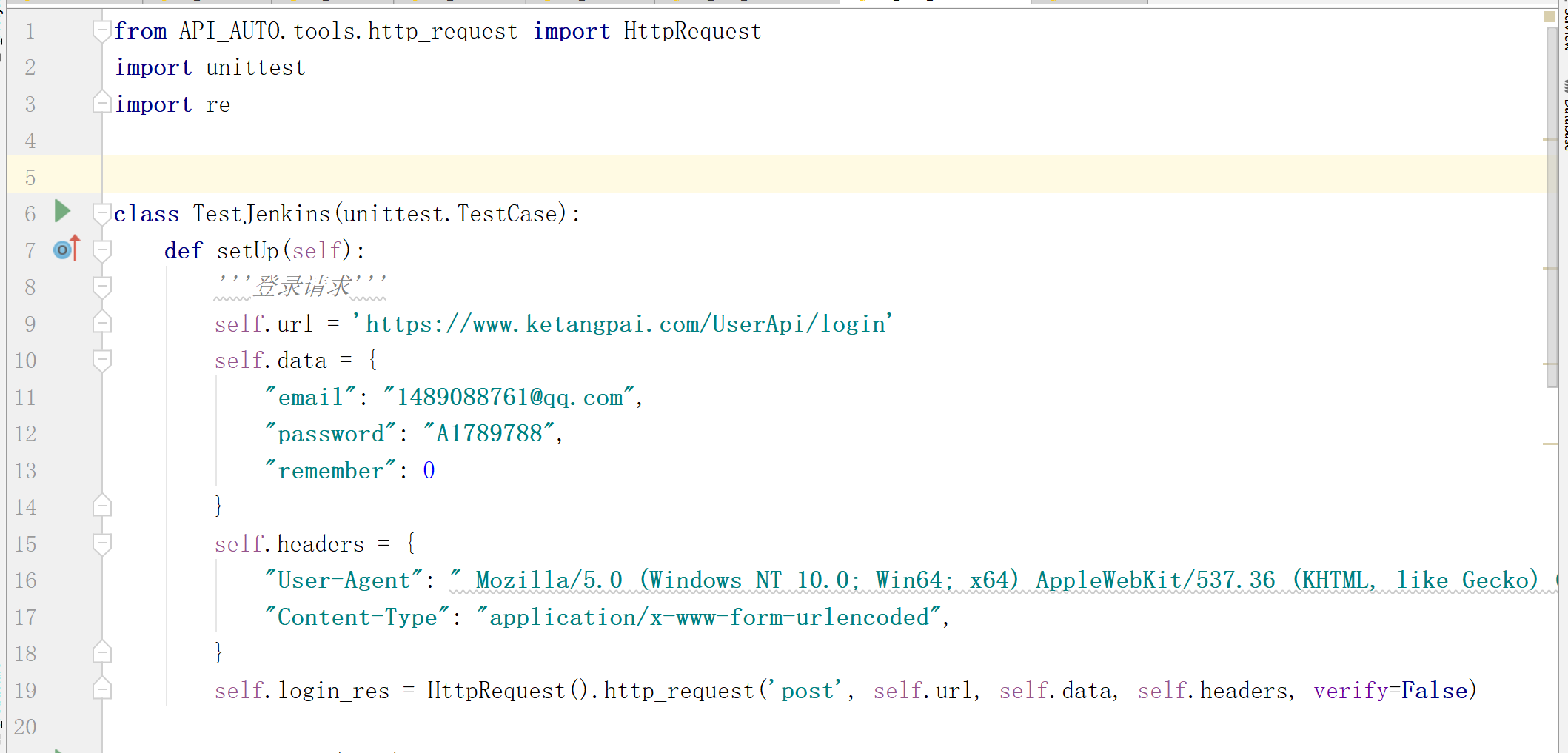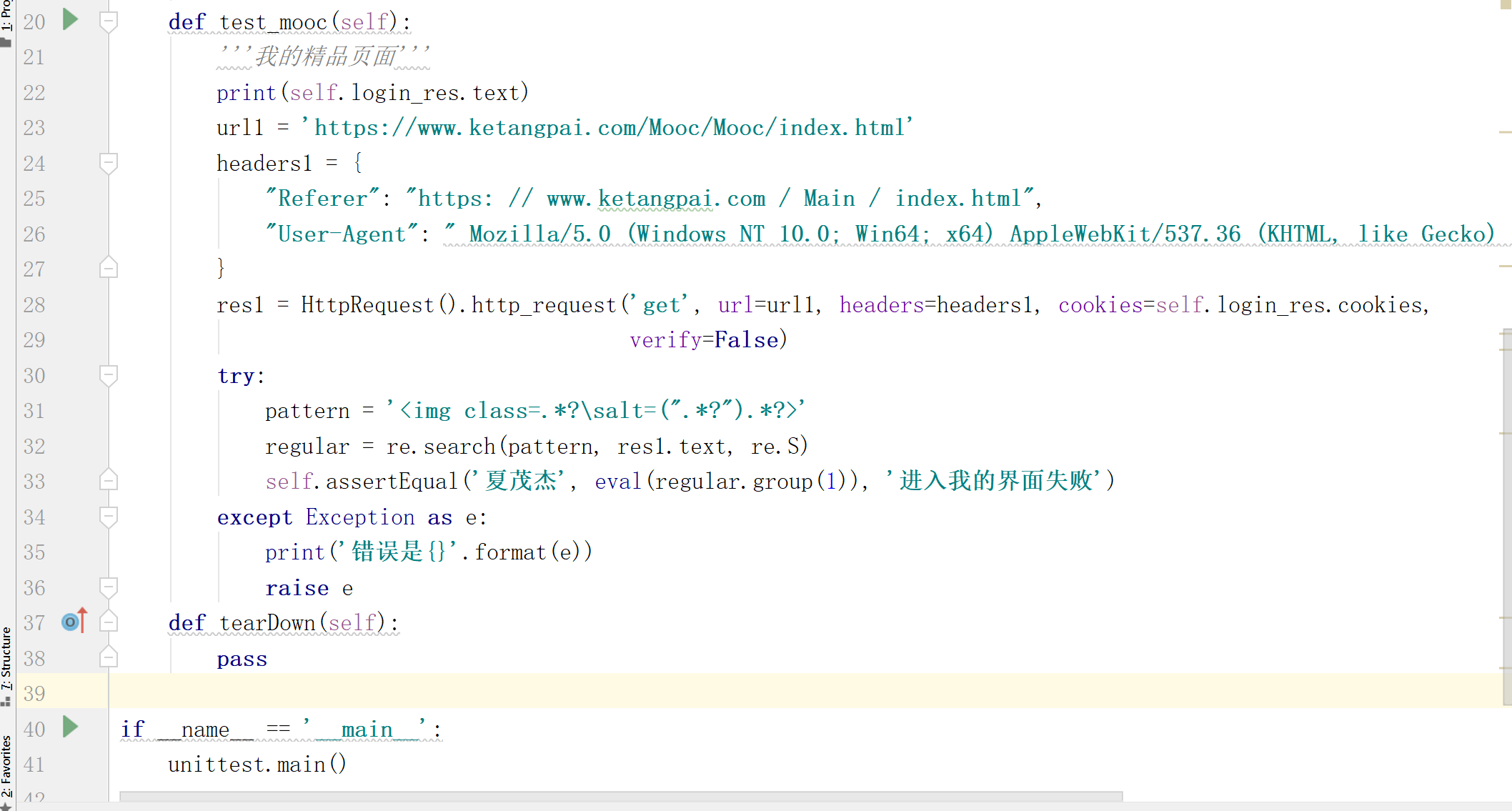setUp是用例运行的前置条件,每次在运行用例的时候,都会优先运行setUp函数,我们可以运用setUp的这一特性,来解决数据依赖问题。
如下图:

将登录的请求放到了setUp函数里面,每次运行前都会发起登录请求。然后再将需要用到的cookie当做参数传递到了下一个请求中。从而解决了数据依赖问题。

参考代码如下:
1 2 3 4 5 6 7 8 9 10 11 12 13 14 15 16 17 18 19 20 21 22 23 24 25 26 27 28 29 30 31 32 33 34 35 36 37 38 39 40 41 42 43 44 | from API_AUTO.tools.http_request import HttpRequestimport unittestimport reclass TestJenkins(unittest.TestCase): def setUp(self): '''登录请求''' self.url = 'https://www.ketangpai.com/UserApi/login' self.data = { "email": "1489088761@qq.com", "password": "A1789788", "remember": 0 } self.headers = { "User-Agent": " Mozilla/5.0 (Windows NT 10.0; Win64; x64) AppleWebKit/537.36 (KHTML, like Gecko) Chrome/78.0.3904.108 Safari/537.36", "Content-Type": "application/x-www-form-urlencoded", } self.login_res = HttpRequest().http_request('post', self.url, self.data, self.headers, verify=False) def test_mooc(self): '''我的精品页面''' print(self.login_res.text) url1 = 'https://www.ketangpai.com/Mooc/Mooc/index.html' headers1 = { "Referer": "https: // www.ketangpai.com / Main / index.html", "User-Agent": " Mozilla/5.0 (Windows NT 10.0; Win64; x64) AppleWebKit/537.36 (KHTML, like Gecko) Chrome/78.0.3904.108 Safari/537.36", } res1 = HttpRequest().http_request('get', url=url1, headers=headers1, cookies=self.login_res.cookies, verify=False) try: pattern = '<img class=.*?\salt=(".*?").*?>' regular = re.search(pattern, res1.text, re.S) self.assertEqual('夏茂杰', eval(regular.group(1)), '进入我的界面失败') except Exception as e: print('错误是{}'.format(e)) raise e def tearDown(self): passif __name__ == '__main__': unittest.main() |



【推荐】编程新体验,更懂你的AI,立即体验豆包MarsCode编程助手
【推荐】凌霞软件回馈社区,博客园 & 1Panel & Halo 联合会员上线
【推荐】抖音旗下AI助手豆包,你的智能百科全书,全免费不限次数
【推荐】轻量又高性能的 SSH 工具 IShell:AI 加持,快人一步